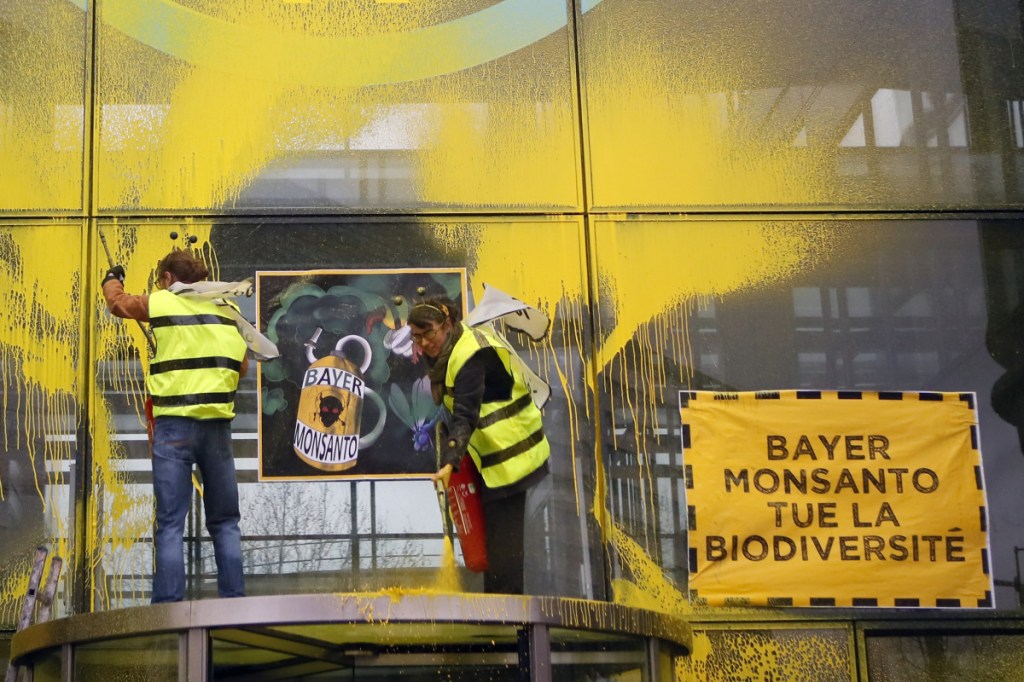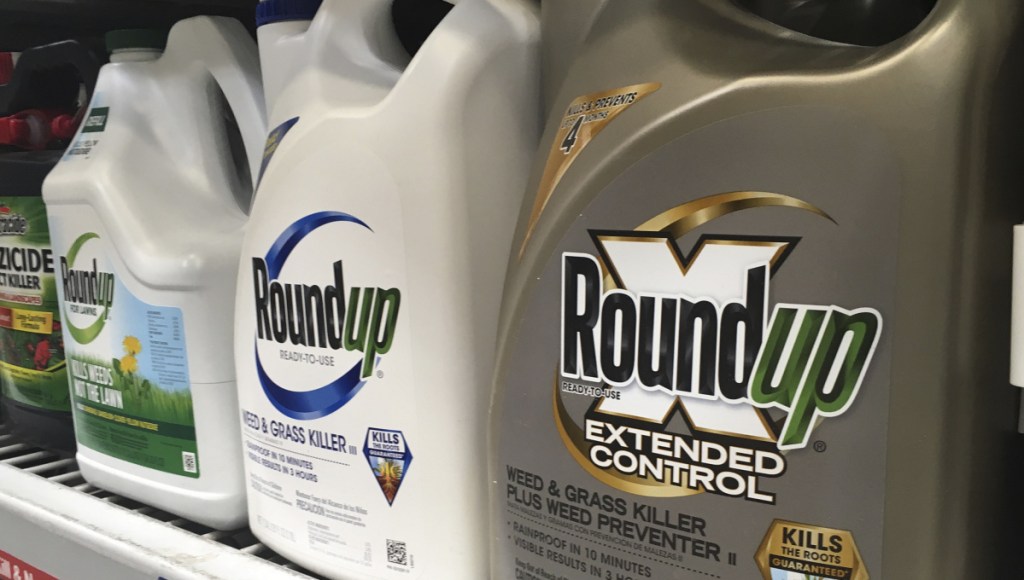Bayer shares plunged more than 10 percent Wednesday after a jury on Tuesday determined that a California man developed cancer from using its weedkiller Roundup.
The case marked the second legal defeat in seven months for the German pharmaceutical giant over its weedkillers. In August, a separate jury hit the company with a $289 million judgment for failing to warn customers of the cancer risks tied to its Roundup and Ranger Pro brands, though the penalty was cut to $78.5 million on appeal.
Bayer was trading at $17.68, off 10.2 percent early on.
And Bayer’s legal troubles are far from over: It faces several more trials this year in California and Missouri.
Bayer acquired Monsanto, the maker of the popular weedkiller, in June for $63 billion, merging Monsanto’s genetically modified crops with Bayer’s line of pesticides. The union created the largest seed and agrochemical company in the world.
Investors have clobbered Bayer’s share price since the acquisition, sending it tumbling downward more than 30 percent.
Environmental advocates and customers have criticized Monsanto for years. Now Bayer faces potentially thousands of lawsuits from people whose farming and landscaping work brought them in direct, sustained exposure to Monsanto’s herbicides. The plaintiffs allege that Monsanto products are linked to their serious illnesses.
The latest trial in California will now enter its second phase. The first stage involved jurors determining if Roundup’s active ingredient caused cancer. In a unanimous decision, the jury found that exposure to glyphosate, the chemical in Roundup, was a substantial factor in Edwin Hardeman’s cancer diagnosis. The California resident said he used the herbicide on his property for decades.
Jurors will now determine liability and damages. As Bloomberg reported, they will hear evidence that Monsanto manipulated public opinion to hide health concerns and boost sales.
Hardeman’s attorney did not immediately respond to a request for comment.
Bayer insists that Roundup products and their active ingredient are safe.
“We are disappointed with the jury’s initial decision, but we continue to believe firmly that the science confirms glyphosate-based herbicides do not cause cancer,” Bayer said in a statement Tuesday. “We are confident the evidence in phase two will show that Monsanto’s conduct has been appropriate and the company should not be liable for Mr. Hardeman’s cancer.”
Bayer also appeared to downplay the forward-looking significance of the legal defeat. The company said that even though it did not prevail in the first phase of the trial, the adverse decision won’t impact future cases and trials because each one contains its own factual and legal specifics.
“We have great sympathy for Mr. Hardeman and his family, but an extensive body of science supports the conclusion that Roundup was not the cause of his cancer. Bayer stands behind these products and will vigorously defend them.”
Bayer previously announced that it would shutter the Monsanto brand name as part of a broader strategy to win back the trust of consumers.
Send questions/comments to the editors.




Success. Please wait for the page to reload. If the page does not reload within 5 seconds, please refresh the page.
Enter your email and password to access comments.
Hi, to comment on stories you must . This profile is in addition to your subscription and website login.
Already have a commenting profile? .
Invalid username/password.
Please check your email to confirm and complete your registration.
Only subscribers are eligible to post comments. Please subscribe or login first for digital access. Here’s why.
Use the form below to reset your password. When you've submitted your account email, we will send an email with a reset code.